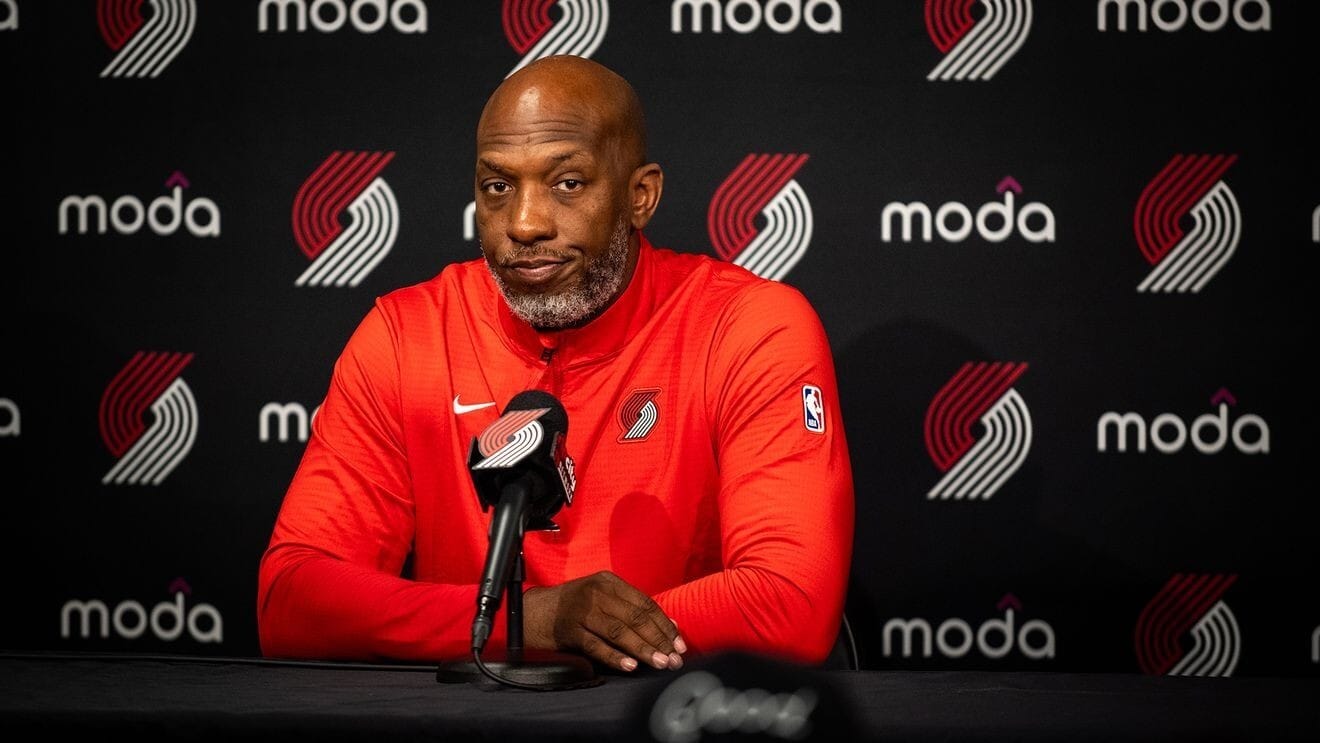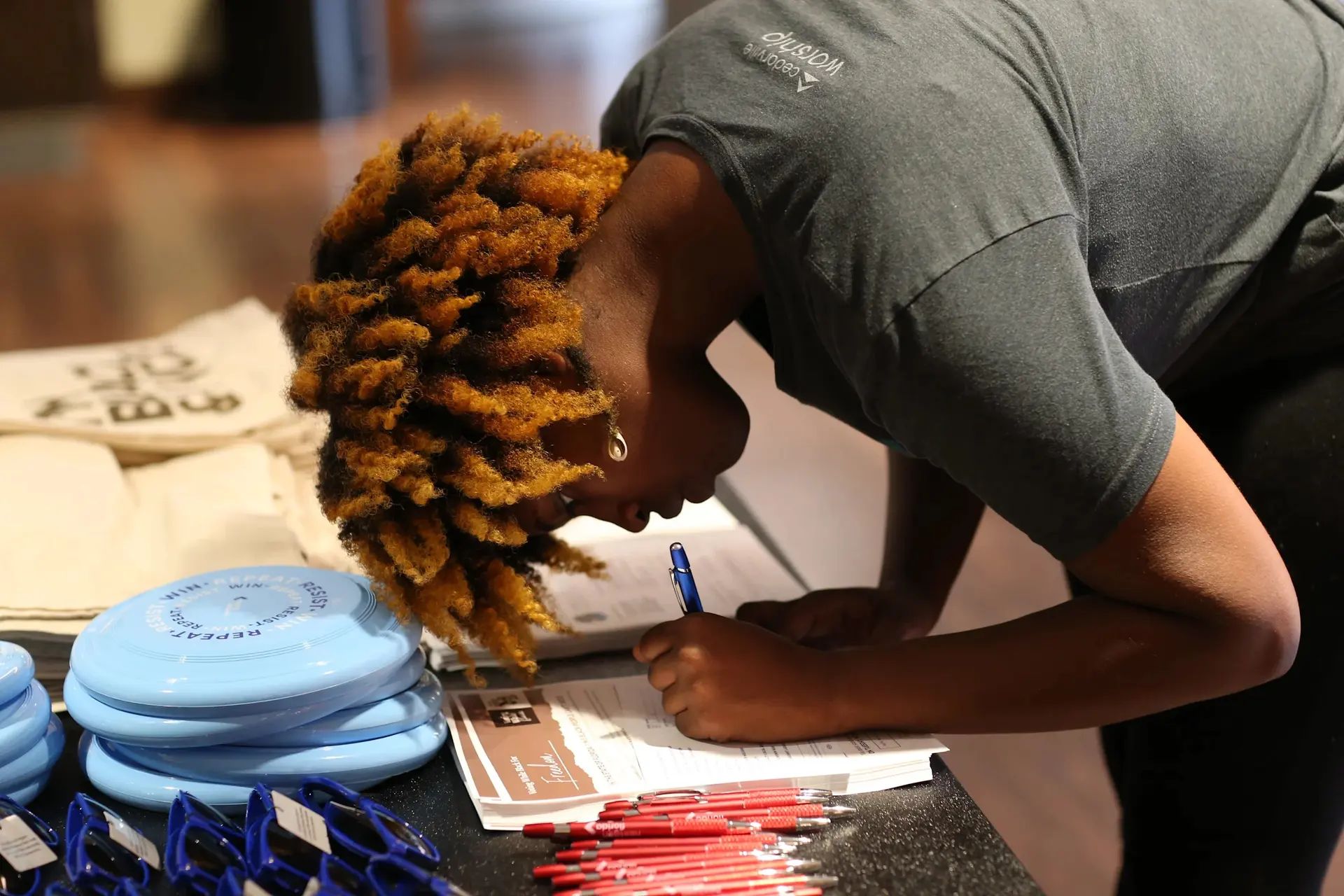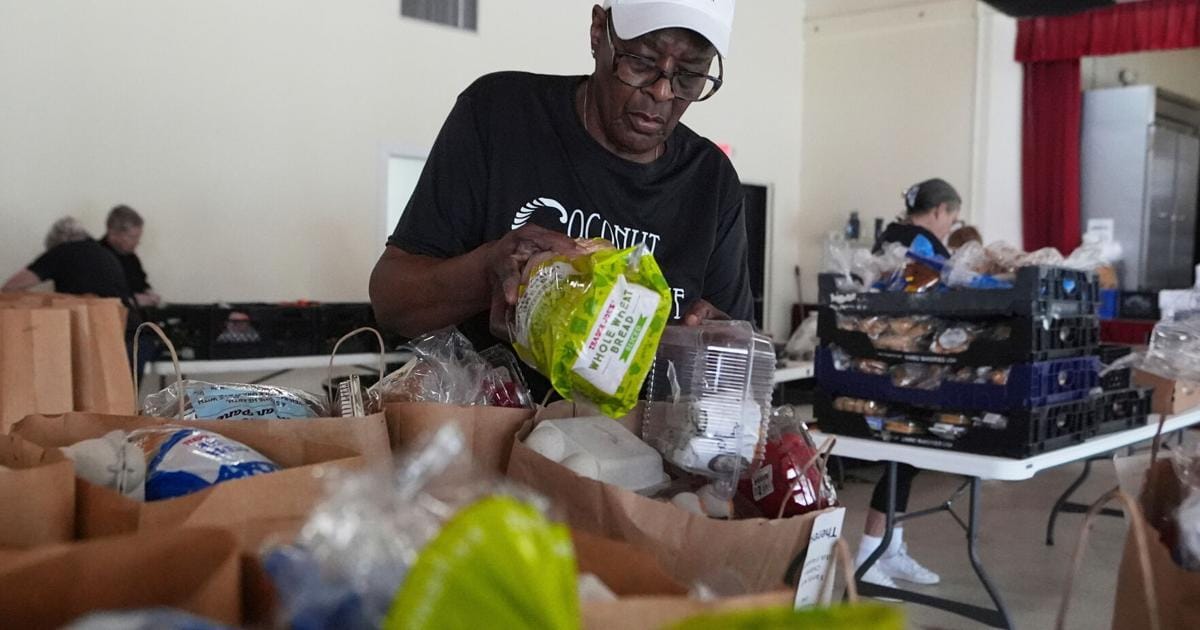- BlackVoter.Org
- Posts
- BlackVoter.Org
BlackVoter.Org


In a recent segment, Jemele Hill slammed former President Trump for his controversial pardon of Changpeng Zhao, the founder of Binance, who was implicated in a money laundering case. Hill accused Trump of treating the country “like a flea market,” prioritizing his profits—over $5 billion from Zhao’s crypto firm—over ethical leadership.
She boldly characterized Trump as possibly "the most corrupt president" in U.S.
history, suggesting that his actions are indicative of a deeper problem within American political ethics. Hill's remarks underscore ongoing concerns regarding how governance may be influenced by personal gain, pushing the narrative that political integrity is increasingly at risk in Trump’s America.
This situation serves as a reminder of the blending of business interests with political power, raising critical questions about accountability in high office.

Black Westchester Magazine has officially endorsed Ken Jenkins for Westchester County Executive, celebrating his steadfast commitment to service, fiscal responsibility, and equal opportunity. Jenkins, who previously served as Deputy County Executive, has demonstrated a robust ability to balance progress with accountability, successfully restoring Westchester’s financial stability while protecting essential services.
His background as a County Legislator has equipped him with the skills to navigate budget management and policy-making with fairness. Jenkins' advocacy for minority and women-owned businesses, improved public health access, and affordable housing underscores his dedication to inclusivity.
Known for his results-driven leadership, he aims to strengthen communities across Westchester, focusing on safer neighborhoods and better schools. In a political climate often marked by division, Jenkins is portrayed as a bridge-builder who listens, learns, and leads with integrity.
The magazine encourages voters to take an active role in the electoral process to support leaders who prioritize community welfare.


In a shocking twist for the NBA, Portland Trail Blazers head coach Chauncey Billups has been arrested and placed on leave amid a sprawling investigation into illegal gambling operations tied to organized crime. The FBI reports that Billups was allegedly involved in rigged poker games and has been connected to several notorious mafia families, leading to accusations of serious crimes including money laundering and wire fraud.
Alongside Billups, Miami Heat player Terry Rozier was also implicated in this elaborate scheme, which reportedly involved fraudulent practices and violent enforcement tactics. As the Trail Blazers prepare for the season with interim head coach Tiago Splitter, Billups’ attorney staunchly defends his reputation, insisting that the Hall of Famer has too much at stake to be involved in such activities.
With Billups set to appear in court soon, this scandal has sent shockwaves through the basketball community, raising questions about the integrity of the sport.

Meet Janai Nelson, a groundbreaking civil rights attorney who recently made her debut before the U.S.
Supreme Court, arguing a pivotal case aimed at preserving Black voting rights. As the president and director-counsel of the NAACP Legal Defense and Education Fund, Nelson passionately represented Black voters in Louisiana v.
Callais, where she advocated for the creation of a second majority-Black congressional district under the Voting Rights Act of 1965. During her compelling argument, she highlighted the ongoing racial disparities in voting patterns and asserted the necessity of this district to combat a history of discrimination.
With her extensive experience in civil rights law, Nelson's case could reshape the future of voting rights in America. Her fervent commitment to democracy and equality shines through as she carries forward the legacy of those who fought tirelessly for justice.
The Supreme Court's decision, expected in summer 2026, will be critical for minority voters nationwide.

New York Attorney General Letitia James made headlines after pleading not guilty to federal mortgage fraud charges, a case seemingly spurred by former President Donald Trump. During her court appearance in Virginia, James maintained her innocence, asserting the indictment as an attempt to misuse the justice system against political adversaries.
Supporters rallied behind her, chanting, “We stand with Tish!” as she proclaimed her faith in American justice and denied allegations of wrongdoing related to her purchase of a second home in Norfolk, Virginia. The prosecution claims she misrepresented her intentions for the property to secure better loan terms.
As a fierce opponent of Trump, James has previously taken significant legal action against him, intensifying the political drama surrounding this case. A trial date has been set for January 26, escalating the stakes in an already charged legal and political landscape.

Florida's political landscape is facing seismic shifts as redistricting efforts and new voting laws threaten to diminish Black political power ahead of the upcoming midterms. With the U.
S. Supreme Court potentially limiting race-based electoral districts, Governor Ron DeSantis is pushing for a controversial mid-decade redistricting session that could redraw boundaries to undermine the influence of Black voters.
Critics argue this move, alongside recent legislation tightening voting access, is a strategic attack on decades of civil rights progress. As Congressional seats held by Black Democrats become targets, many fear the changes will scatter minority votes into predominantly Republican districts.
Analysts note that voter turnout among Black Floridians has already declined, exacerbated by recent laws restricting voting methods and targeting independent registration efforts. The political climate remains tense, with grassroots organizations feeling the squeeze as they work to rally community support and ensure every voice is heard at the polls.

As the government shutdown looms, states are scrambling to address a critical concern: the potential halt of the Supplemental Nutrition Assistance Program (SNAP), which assists approximately one in eight Americans in purchasing groceries. With benefits set to dry up on November 1, officials from states like Louisiana, Vermont, and Virginia are stepping up, pledging to maintain food aid even if federal support falters.
This urgency highlights the growing anxiety around food insecurity and the commitment of state leaders to ensure their residents have access to essential resources. As the deadline approaches, the collaboration between state and local organizations becomes increasingly vital to bridge the impending gap in food assistance and alleviate hunger for those in need.

"The Walls Remember: Murals and the Unyielding Story of Black America" celebrates the powerful murals that chronicle the Black experience across the United States. From Philadelphia's vibrant expressions of history to Baltimore's artistic resilience, these murals serve as a bold testament to defiance against erasure.
Highlighting figures like Harriet Tubman and the Tuskegee Airmen, artists transform walls into canvases of memory, telling stories that refuse to remain silent. Each brushstroke asserts the beauty of Black life, challenging the narrative of invisibility and oppression.
The article emphasizes that these murals are more than art; they are powerful declarations of identity and resistance, preserving a legacy that cannot be rewritten or silenced. As America grapples with its past, these murals boldly proclaim, "We are still here," inviting all to recognize and honor the enduring masterpiece that is Black history.